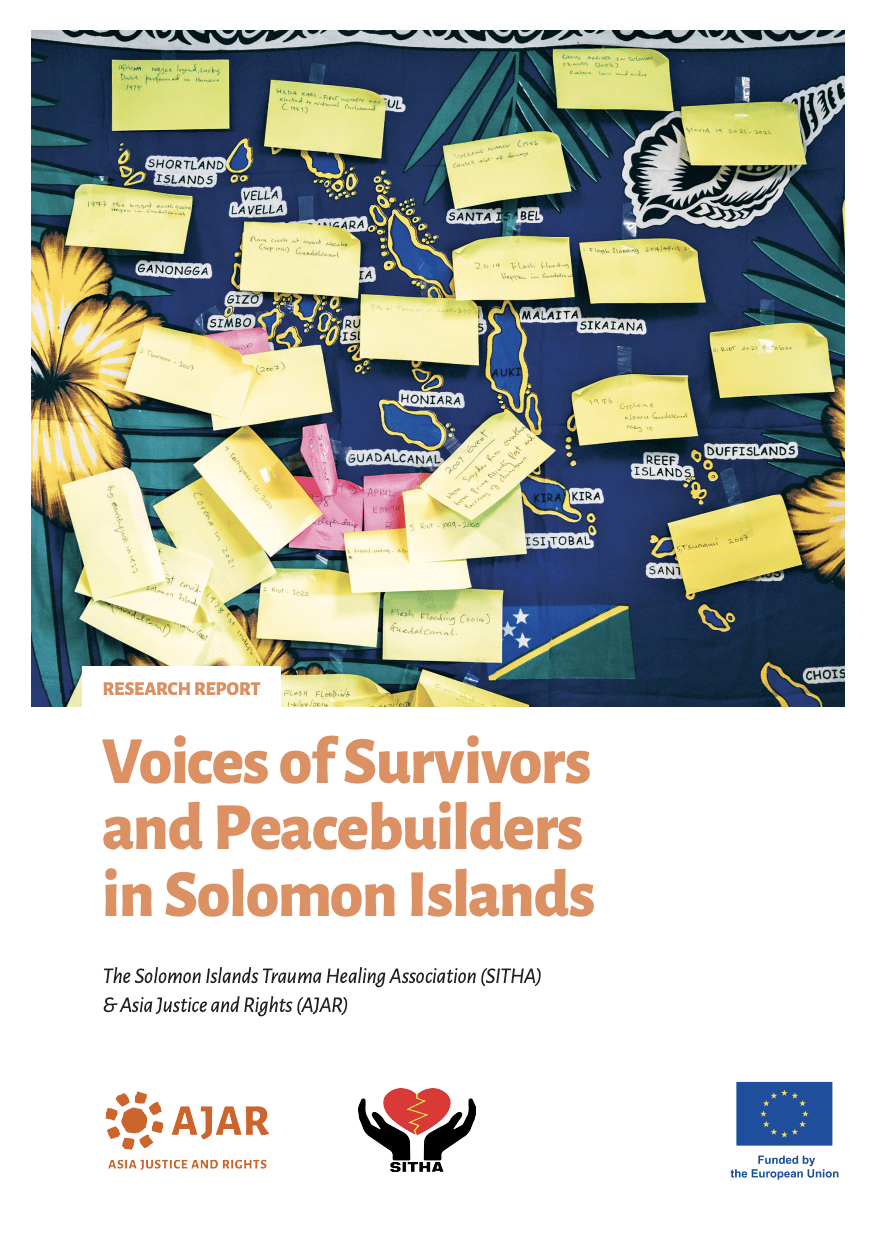In 1999, a period of conflict known as “the Tensions” broke out in the Solomon Islands. Until peace was restored in 2003, thousands of civilians were subject to violations including sexual violence, theft, unlawful killing, internal displacement and torture. Many people were left with physical and psychological trauma, while communities faced deep divisions and social mistrust.
In the wake of “the Tensions”, a range of peacebuilding initiatives were undertaken including community reconciliation ceremonies, trials in national courts, attempts to provide reparations, security sector reforms and constitutional change. Of particular significance was the Solomon Islands Truth and Reconciliation Commission (TRC). Established in September 2008, the TRC collected statements from more than 2,400 victims, witnesses, leaders and persons involved in the conflict while conducting both public and confidential hearings.
On 28 February 2012, TRC’s Final Report was handed to the Solomon Islands Government, and made a range of recommendations based on deep inquiry into the tensions and factors that had contributed to the violations. However, it was not until September 2023 that the Solomon Islands Parliament deliberated the Truth and Reconciliation Commission’s paper and its recommendations.
At the same time, the Solomon Islands Trauma Healing Association (SITHA) and Asia Justice and Rights (AJAR) began to work on strengthening the understanding of civil society and victims’ groups on the “never again” promises within transitional justice mechanisms. Specifically, how could the findings and recommendations of the TRC process contribute to peace, provide a road map to justice, and take meaningful steps towards social healing. In August and September 2022, SITHA conducted two trauma healing workshops in two locations with 60 survivors of human rights violations and community members (10 men, 40 women).
